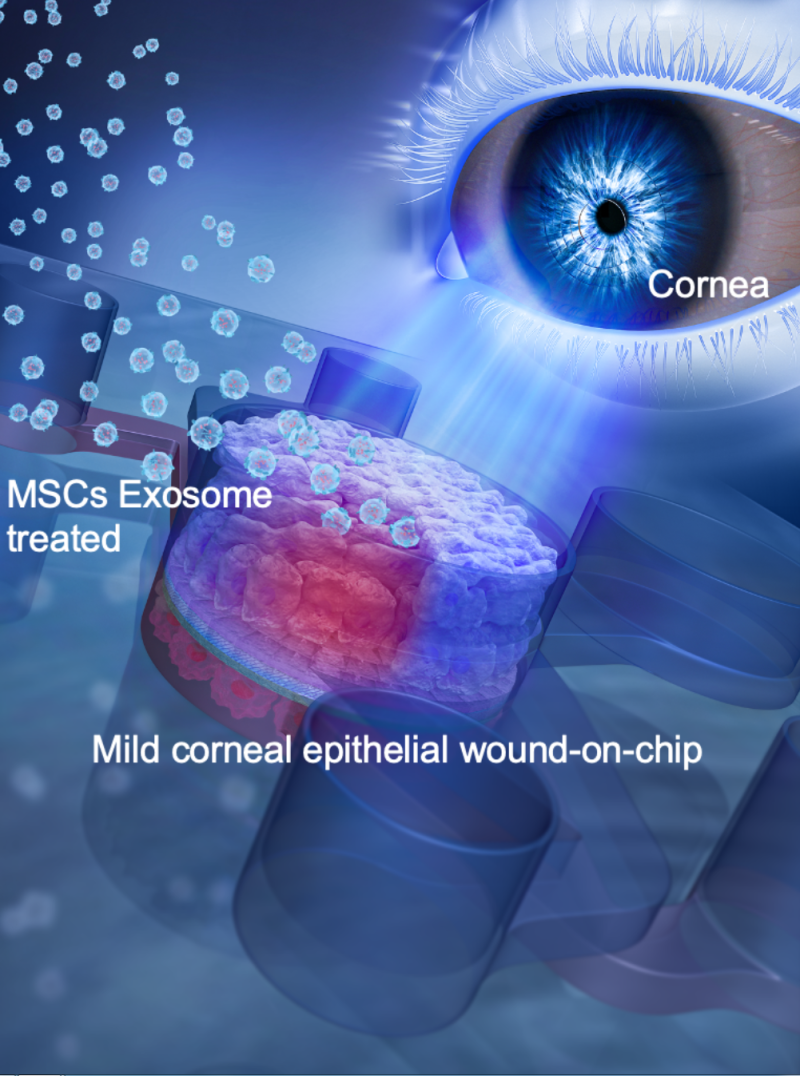Mesenchymal Stem Cell Exosomes Promote the Repair of Corneal Wound in Human-cornea-on-a-chip: Study
Date:25-05-2022 | 【Print】 【close】
Mesenchymal stem cells (MSCs) with regenerative and differentiation capabilities have received much attention among ophthalmologists and scientists as an alternative modality in the management of corneal diseases. The paracrine effect of MSCs, mediated by exosomes, has also been suggested for their therapeutic effect. The cell-free nature of exosomes has gained particular interest with respect to its safety.
Recently, a research team led by Prof. YANG Hui from the Shenzhen Institute of Advanced Technology (SIAT) of the Chinese Academy of Sciences developed a human cornea-on-a-chip to validate a therapeutic effect of corneal diseases with MSCs exosomes.
The study was published in iScience on Apirl 4.
In the experiment, a microfluidic platform consisting of human corneal cells and a porous membrane was developed, replicating the multi-scale structural organization and biological phenotype.
Later, the human cornea-on-a-chip was used to establish an in vitro mild corneal injury model to study whether cell-free therapy promotes corneal wound healing. They found that the bone marrow-derived mesenchymal stem cells exosomes can significantly promote cell migration and reduce the expression of matrix metallopeptidase 2 (MMP-2) protein, indicating that it can inhibit corneal inflammation and neovascularization, which is beneficial for wound healing.
"We are thrilled to develop a promising platform with dramatic advances for studying nanodrug delivery systems," said Prof. YANG, "by mitigating the drawbacks of conventional models, cornea-on-a-chip is able to recapitulate physiological and pathophysiological features of human cornea in artificial microfluidic devices with high fidelity."
This work demonstrated a micro-engineered device to study the therapeutic effect of corneal diseases with MSCs exosomes, providing a potential solution to obtain predictive results from in vivo observations.
"Our study validates the therapeutic effect of corneal diseases with MSCs exosomes, but the mechanism remains unknown," said YU Zitong, the first author of this study, "we will continue working on this question."

Figure. A human cornea-on-a-chip for the study of epithelial wound healing by mesenchymal stem cell exosomes. (Image by SIAT)
Media Contact:
ZHANG Xiaomin
Email:xm.zhang@siat.ac.cn